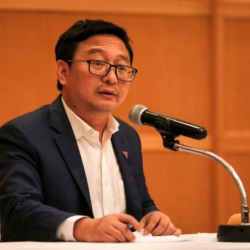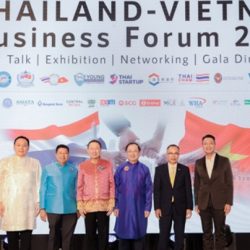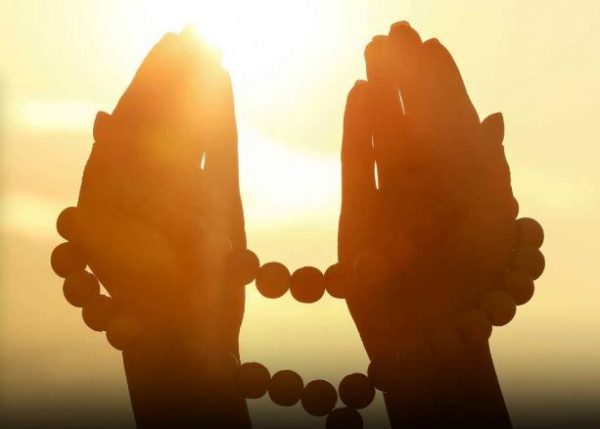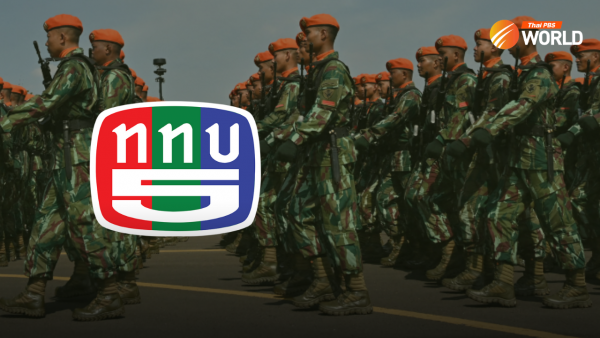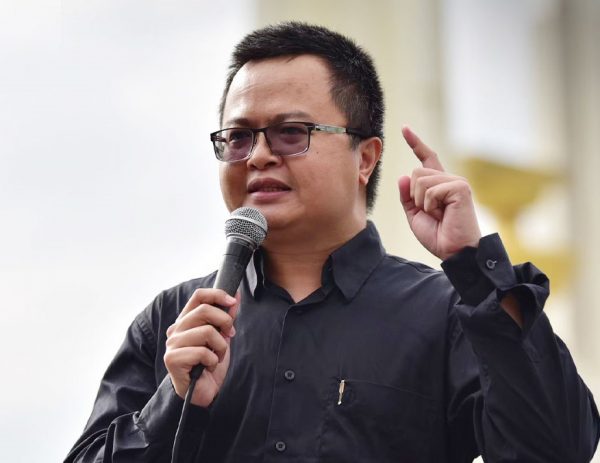At Camp David, Biden seeks to cement ‘new era’ with Japan, S.Korea

For years, US ambitions in Asia, a top priority as China’s power grows, have faced a seemingly insurmountable obstacle — animosity between Washington’s key allies, Japan and South Korea.
On Friday, President Joe Biden will seize on a breakthrough between the Asian neighbors’ leaders with a first-of-a-kind three-way summit, hoping to institutionalize the new spirit of cooperation.
Against a backdrop of high tensions and rising missile tests by North Korea, Biden, South Korean President Yoon Suk Yeol and Japanese Prime Minister Fumio Kishida are expected to announce new initiatives to work together on missile defense, intelligence-sharing and technology.
Hoping to bring added pomp, Biden has invited Yoon and Kishida to Camp David, the presidential resort in the hills outside Washington synonymous with Middle East peacemaking, in the first major diplomatic event since 2015.
Biden will “mark what we believe is a new era in trilateral cooperation,” Secretary of State Antony Blinken said Tuesday after a virtual meeting with the Japanese and South Korean foreign ministers to prepare the summit.
Employing the veiled US language for countering China’s assertiveness in Asia, Blinken said the summit would promote a shared vision of a “free and open, resilient, secure, connected Indo-Pacific.”
-Making cooperation permanent –
Relations between Tokyo and Seoul have long been marred by memories of Japan’s harsh 1910-1945 occupation of the Korean peninsula.
Yoon, a conservative elected last year, has taken political risks at home by resolving a dispute related to forced labor, a move reciprocated by Japan.
Yoon in May paid the first trip to Tokyo by a South Korean leader in 12 years and on Tuesday, marking the anniversary of independence, described modern-day Japan as a partner that shares values and interests.
But Christopher Johnstone, an expert at the Center for Strategic and International Studies, said that the efforts by Yoon — restricted to a single presidential term that ends in 2027 — remain deeply controversial at home and that many Japanese are skeptical the reconciliation will last.
The focus of the summit will be to “look for ways to institutionalize the progress that’s been made, and to make it harder for future leaders in any of these countries to walk away from it,” he said.
Grievances linked to wartime history have quickly escalated in the past.
In 2019, South Korea for months said it would exit an intelligence-sharing pact with Japan. Two years later, a Japanese diplomat abruptly declined to share the stage with his South Korean counterpart at three-way talks in Washington.
But concerns have grown in both countries over North Korea, which has raced ahead on its missile program and refused dialogue with the Biden administration after unusual summit-level talks with his predecessor Donald Trump.
On China, public opinion in Japan and South Korea has deteriorated sharply in recent years following heavy-handed pressure by Beijing, which in recent months has softed its tone and sought dialogue.
Eighty percent or more of adults in both countries see China negatively, according to a Pew Research Center survey last year.
Shedding earlier reticence, Japan and to a lesser extent South Korea have increasingly joined the United States in voicing alarm over a potential Chinese invasion of Taiwan, the self-governing democracy claimed by Beijing.
– No longer just North Korea –
Despite their historic disputes and economic competition, Japan and South Korea see eye to eye with each other and the United States on most major global issues — notably in joining the West in backing Ukraine against Russian invasion.
“Japan and South Korea are core allies — not just in the region, but around the world,” Blinken said.
He expected a continued focus on North Korea “given the endless provocation it’s taken” but said that the United States has developed a “much more expansive agenda” with its Northeast Asian allies.
Biden met Kishida and Yoon together last year on the sidelines of the East Asia Summit in Cambodia — and Biden welcomed Yoon for a state visit — but Camp David will mark the first standalone summit involving the three countries.
Sheila Smith of the Council on Foreign Relations said she was struck by the talk of shared values at the Cambodia talks and expected the Camp David summit to go a step further.
“This is a trilateral that matters not just for the specific security challenges that North Korea presents, but also can be mobilized for the broader goals of the Indo-Pacific,” she said.

